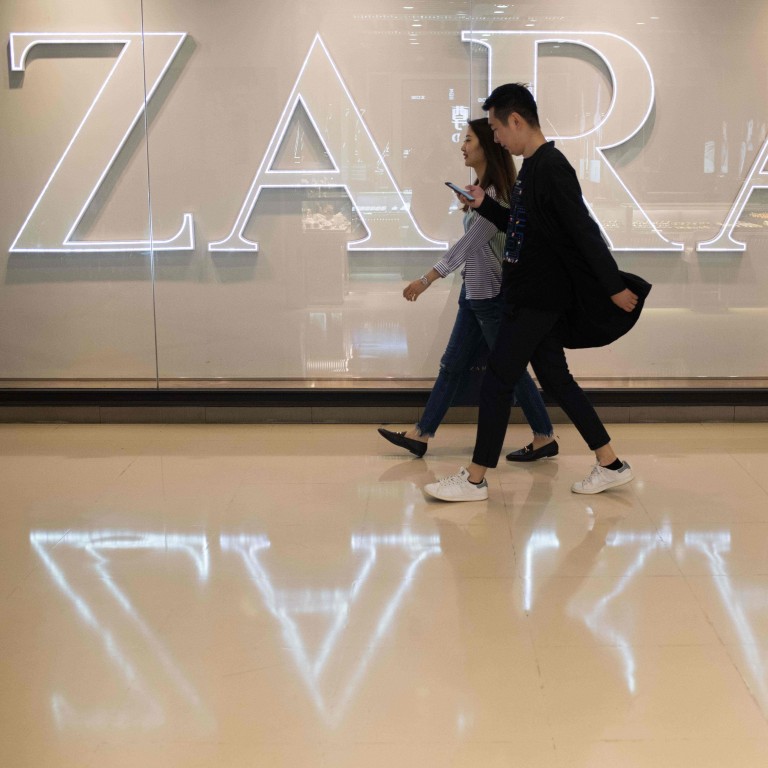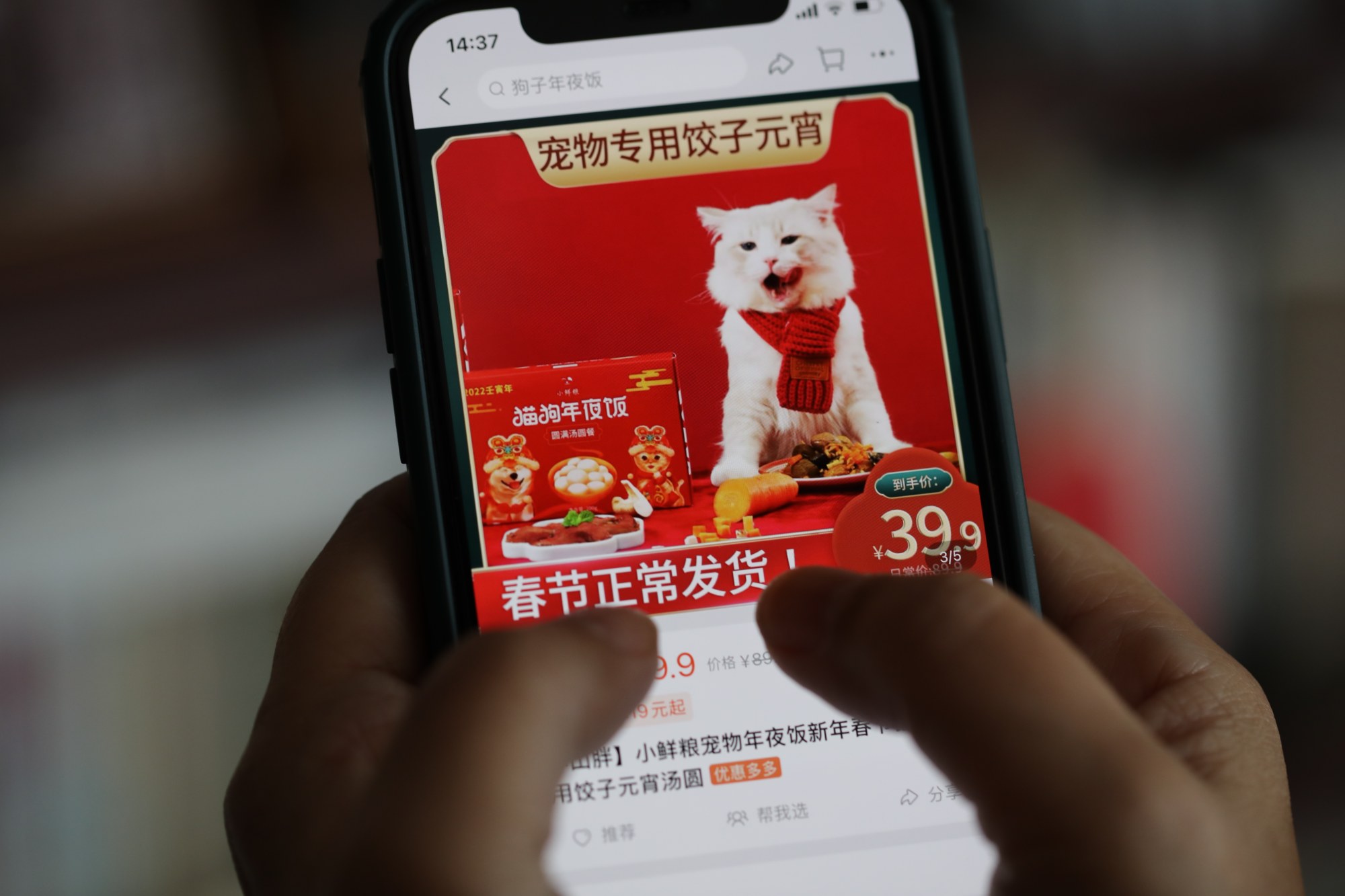
Online sales of brands from Uniqlo to Zara plunge in China as Covid-19 lockdowns freeze spending
- Sales turnover for Japanese clothing brand Uniqlo on Tmall was down 33 per cent in April from a year ago, while Spanish apparel retailer Zara saw a plunge of 56 per cent
- China’s e-commerce sector has been hit hard, with disruptions to deliveries and warehouses locked up, while demand for luxury goods has dried up
International consumer brands such as Uniqlo and Zara have experienced a dramatic drop in sales on Chinese e-commerce platforms as the country’s strict lockdowns stunted consumer spending in April, according to data compiled by third-party research firms.
The gross merchandise value (GMV), or sales turnover, for Japanese clothing brand Uniqlo on Alibaba Group Holding’s Tmall site was down 33 per cent in April from a year ago while the GMV sales of Spanish apparel retailer Zara plunged 56 per cent in the same month, according to data provided by market research firm YipitData.
French beauty brand Lancome saw its Tmall sales fall 33 per cent in the same period, while Samsung Electronics’ sales on the e-commerce platform tumbled 23 per cent, according to YipitData.
Alibaba, owner of the South China Morning Post, did not immediately respond to a request for comment.
Hong Kong e-commerce start-up Yoho kicks off US$300 million IPO
The sharp fall in online sales for these consumer brands reflects the impact of China’s dynamic zero Covid-19 policy on consumer spending. At the national level, total retail sales – seen as a barometer of consumer spending – plunged 11.1 per cent in April from a year ago.
China’s e-commerce sector has been hit hard by the lockdowns, with disruptions to deliveries and warehouses locked up, while demand for luxury goods and discretionary items has rapidly disappeared as China’s affluent middle class became reluctant to spend.
Shanghai resident Lin Caiyi, a well-known economist in China’s investment banking industry, said on her Weibo account that her latest monthly credit card bill was only 11.4 yuan (US$1.71) because she was trapped at home and was unable to make online purchases due to disrupted logistics.

According to data posted on LinkedIn by Josh Gartner, chief executive of Kungfu Data, another market research firm, Bulgari’s sales on Taobao and Tmall, both operated by Alibaba, plunged more than 90 per cent in April from a year ago, while sales of Hermes in the same period dropped 53 per cent.
Alibaba, the Hangzhou-based e-commerce giant, is due to report its latest quarterly results on Wednesday, with analysts forecasting record low growth in revenue.
Over at Kuaishou, China’s No 2 short video app that has been developing its own e-commerce business, chief executive Cheng Yixiao said the country’s strict Covid-19 measures have dragged down growth of the company’s e-commerce and advertising business.
‘It’s impossible’: Shanghai lockdown delivers blow to live-streaming sales
“It is estimated that more than half of Kuaishou merchants are in the pandemic control area,” Cheng said on an earnings call on Tuesday. “Affected by control measures, users cannot order on demand and receive delivery on time [and] purchase frequency decreased year-over-year. Merchants’ live-streaming activity is also impacted in these areas.”
Jacky Lai, chief executive of Hong-Kong based wholesale marketplace Peeba, said the situation “is looking increasingly dire” for consumer brands in China and there could be long-term implications for China if demand dries up due to lockdowns.

